The ISTPP Fellows program recognizes individuals who have made a significant contribution to the development of the Institute for Science, Technology and Public Policy and to its mission, aims, and objectives. Participation as an ISTPP Fellow is by invitation from the Institute. Fellows are selected based upon current and past collaboration with the Institute on interdisciplinary proposals, projects, and scholarship, as well as distinguished accomplishments within the individual’s discipline.

Zach N. Adelman
Dr. Adelman is a professor in the Department of Entomology in the College of Agriculture and Life Sciences at Texas A&M University. Dr. Adelman’s research interests include developing new methods for controlling mosquito-borne infectious diseases, including gene editing and gene drive technology. These research efforts also include participating in projects and planning documents designed to include public perceptions about new genetic approaches to managing pest species.

Bjorn Birgisson
Dr. Birgisson is a professor and chair for the School of Environmental, Civil, Agricultural and Mechanical Engineering in the College of Engineering and the University of Georgia. Dr. Birgisson’s research brings an interdisciplinary, collaborative approach to developing and managing infrastructure that improves community resiliency, encompasses smart technologies, uses sustainable materials, and is built to last.
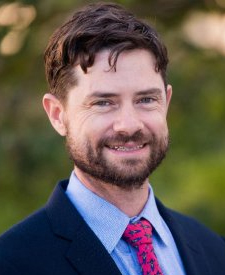
R. Patrick Bixler
Dr. Bixler is an assistant professor in the Lyndon B. Johnson School of Public Affairs at The University of Texas at Austin. Dr. Bixler has a joint appointment in the community and regional planning program in the School of Architecture. His current research focuses on climate and environmental governance, urban sustainability and resilience, hazard preparedness and response, and network science. He is particularly interested in how public, private and nonprofit institutions collaborate to solve complex social and environmental problems and promote social innovation.

Ann O’M. Bowman
Dr. Bowman holds the Hazel Davis and Robert Kennedy Endowed Chair in Government and Public Service and is a professor in The Bush School of Government and Public Service at Texas A&M University. She specializes in state and local politics and management; public policy, especially the substantive areas of environment, economic development, and land use; and intergovernmental relations.

Samuel D. Brody
Dr. Brody holds a joint appointment as a professor in the departments of Marine Sciences at Galveston and in Landscape Architecture and Urban Planning at College Station Texas A&M University. He holds the George P. Mitchell ’40 Chair in Sustainable Coasts and directs both the Institute for Sustainable Coastal Communities at Galveston and the Center for Texas Beaches and Shores. Dr. Brody is conducting research in environmental planning, coastal sustainability, ecosystem management, and geographic information systems.
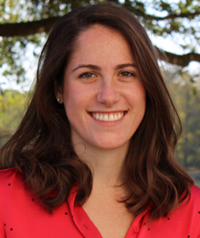
Leah W. Buchman
Dr. Buchman is a Senior Research Analyst in the North American Crop division with Kynetec, a global market research company. Dr. Buchman’s interests include plant-insect-microbe interactions and their role in Integrated Pest Management (IPM) agricultural systems as well as public perception and public policy of emerging biotechnologies in agriculture. Dr. Buchman brings strong scientific acumen and analytical skills through collaborative and interdisciplinary approaches.
Alicia Cooperman
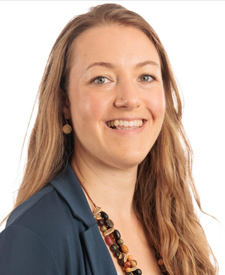
Dr. Cooperman is an Assistant Professor of Political Science and International Affairs at The George Washington University. Her broader research agenda studies the politics of natural disasters, natural resource management, and climate change mitigation and adaptation. Recent projects examine the role of community organizing in improving household water security and adaptation to climate change in a variety of contexts, including colonias in El Paso County, counties along the Texas Gulf Coast, and rural communities in Northeast Brazil.
Read more on Dr. Cooperman here

Bassel Daher
Dr. Daher is an Assistant Research Scientist at the Texas A&M Energy Institute at Texas A&M University where he leads its Convergence Research Incubator. He is also an Adjunct Assistant Professor at the Department of Biological & Agricultural Engineering. Dr. Daher is interested in bridging physical and social science to develop analytics that catalyze an evidence-based, multi-stakeholder dialogue around trade-offs associated with technological, policy, and social interventions to address the interconnected water, energy, and food security challenges.
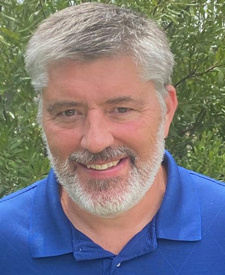
Kirby Goidel
Dr. Goidel is a professor in the Department of Political Science at Texas A&M University. His research is motivated by questions of democratic governance, including whether citizens are up to the task of self-governance, the willingness and ability of elites to manipulate public opinion, and the institutional mechanisms that translate democratic inputs into policy outcomes. Dr. Goidel has also studied the concerns, risk perceptions, and policy preferences of residents living in communities located along the Gulf of Mexico.
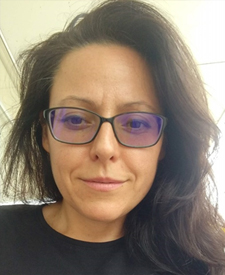
İnci Güneralp
Dr. İnci Güneralp is an associate professor in Geography in the College of Arts and Sciences at Texas A&M University. Dr. Güneralp is a fluvial geomorphologist and hydrologist. Her research aims to develop creative and effective pathways for sustainable management of surface water within lowland landscapes where nature, people, and built environment interact and coevolve. She is also interested in how public policies can impact these interactions and co-evolution and enhance the resilience of these landscapes.
Read more on Dr. Inci Güneralp
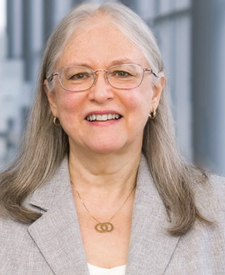
Elizabeth Heitman
Dr. Heitman is a Professor in the Program in Ethics in Science and Medicine and Department of Psychiatry at the University of Texas Southwestern Medical Center in Dallas, Texas. Dr. Heitman’s research focuses on cultural aspects of ethics in medicine, biomedical science, and public health, particularly international standards of research ethics and the responsible conduct of research. She is a National Associate of the US National Research Council.
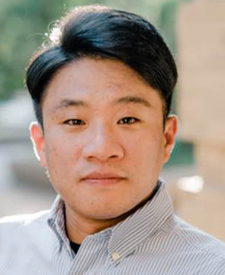
Hyunseok Hwang
Dr. Hwang is an assistant professor for the department of Sociology in the College of Liberal Arts and Social Sciences at the University of Houston. His academic interests include organization theory, environmental sociology, community resilience, philanthropic studies and social entrepreneurship. His research has an overarching theme of identifying how organizations respond to institutional heterogeneity, grand societal challenges (i.e., massive social and environmental issues) and challenges to organizational sustainability.

Bryan D. Jones
Dr. Jones holds the J.J. Pickle Regents Chair in Congressional Studies and is a professor in the Department of Government at the University of Texas. Dr. Jones co-directs the Policy Agendas Project currently housed at the University of Texas. He studies models of decision-making and choice, fiscal policy, agenda-setting, and public policy processes.

Natalie Johnson
Dr. Johnson is an Associate Professor and Chair of the Interdisciplinary Program in Toxicology in the Department of Environmental & Occupational Health at Texas A&M University School of Public Health. Her research interests focus on adverse health effects from air pollution exposure in pregnant women, children, and other vulnerable populations disproportionately exposed to pollutants, including fine and ultrafine particulate matter and volatile organic compound (VOC) mixtures. Dr. Johnson directs the mobile responding to air pollution in disasters (mRAPiD van), a unique mobile platform that allows for real-time detection of chemical air pollutants
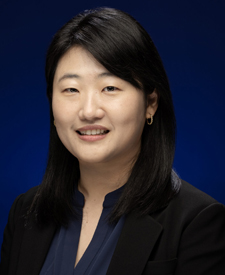
Ki Eun Kang
Dr. Kang is an assistant professor in the Department of Public Administration in the Jack H. Brown College of Business and Public Administration at California State University, San Bernardino. Her research interests include community and local economic development, resilience, environmental and urban policy, behavioral public policy, and conflict resolution. Currently, her research delves into the resilience policies and programs of the 101 largest cities in the U.S. Additionally, she explores public opinions on Public-Private Partnerships (PPP), collaboration, as well as climate and environmental health topics.

Kellee Kirkpatrick
Dr. Kirkpatrick is an independent research consultant who has worked closely with the Institute on multiple studies and has held appointments in academia. Her research often explores how policy evolves at the intersection of morality and economic interests. Because these issues are often the focus of public attention, her research examines how interest group activity and media frames influence public opinion, political behavior, and the policy process.
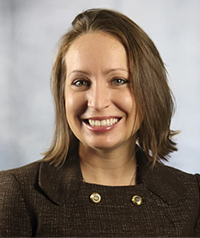
Jenna A. Lamphere
Dr. Lamphere is an assistant professor of sociology and program
coordinator for the Tourism and Coastal Community Development
program in the Department of Liberal Studies at Texas A&M University
Galveston. Her research examines environmental sustainability and
justice and the environmental, social and economic effects of maritime
industries on coastal communities. She is especially interested in
multilevel governance of urban transformations towards sustainability,
with an emphasis on large-scale, multisectoral change.
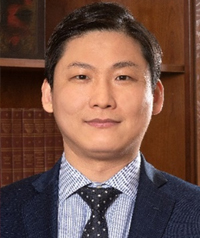
Sungdae Lim
Dr. Lim is an assistant professor in the political science department at Sam Houston State University. His research focuses on public- and nonprofit-sector innovation, leadership, and partnerships with particular agendas on coproduction, social equity, community engagement, and social construction in public service governance.
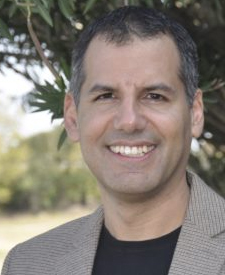
Raul Medina
Dr. Medina is a professor in the Department of Entomology in the College of Agriculture and Life Sciences at Texas A&M University. Dr. Medina’s research interests center on the role that ecological factors play in the population genetics of insects. He is particularly interested in the incorporation of evolutionary ecology considerations into pest control practices. His laboratory conducts research aimed to understand how species interactions among parasites and their hosts get modulated by their microbiota and by the structuring of their genetic variation. Dr. Medina is also interested in understanding the factors that modulate public perception of novel products of biotechnology.
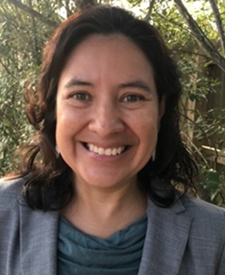
Itza Mendoza-Sanchez
Dr. Mendoza-Sanchez is an assistant professor in the Department of Environmental and Occupation Health in the School of Public Health at Texas A&M University. Her research examines the transport, transformation, and persistence of contaminants in the environment. Her work covers the transport of antibiotics and associated development of antibiotic resistance in the soil environment. Dr. Mendoza-Sanchez also researches the physical and biological factors that control bioremediation of contaminated groundwater. She is also interested in how people perceive the effect of environmental pollutants on their health.
Read more on Dr. Mendoza-Sanchez
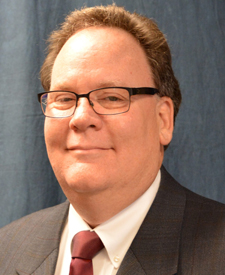
Jason B. Moats
Dr. Moats serves as the Director for the Texas A&M Engineering Extension Service (TEEX) Testing and Innovation Center. He is also a lecturer in the online Graduate Certificate of Homeland Security Program in the Bush School of Government and Public Service at Texas A&M University. In addition to three decades of experience in emergency services, Dr. Moats has published articles on crisis management and training and development.

Felix Mormann
Dr. Mormann is a professor of law at Texas A&M University School of Law. His research explores the legal, policy, and financial challenges to achieving a sustainable energy economy. His scholarship draws from literatures on environmental law, regulatory theory, law and economics, corporate law, technology innovation, tax law, and more recently, federalism. Dr. Mormann has published numerous articles on financial, market, and tax policy solutions for increasing energy production from low-carbon sources and mitigating climate change.

Ali Mostafavi
Dr. Mostafavi is an associate professor for the Zachry Department of Civil Engineering in the College of Engineering at Texas A&M University. His research focuses on complex system-of-systems modeling, resilience of interdependent infrastructure, disaster resilience, and resilience intelligence. Dr. Mostafavi is also a research affiliate of the Texas A&M Engineering Experiment Station.

Ren Mu
Dr. Mu’s research is in the empirical microeconomics area of development economics. Her research goal is to enhance the understanding of decision making of households and individuals in the developing world and to provide evidence for designing and implementing sound public policies. Dr. Mu’s studies mainly focus on China and can be grouped into four sets of topics: (1) the public opinions of certain socioeconomic issues, for example, inequality and environmental problems; (2) the determinants and impacts of human capital outcomes; (3) the opportunities for and obstacles to rural-urban migration and the migration impacts on rural communities and households; and (4) the effectiveness and allocations of public investments.
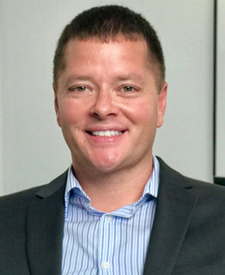
Galen Newman
Dr. Newman is Professor and Department Head in the Department of Landscape Architecture and Urban Planning in the School of Architecture at Texas A&M University. His research interests include urban regeneration, land use science, spatial analytics, community flood resilience, and community/urban scaled design. His current research focuses on the integration of urban regeneration and urban flood resilience.
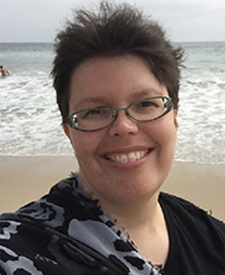
Elizabeth Nyman
Dr. Nyman is an associate professor of political science in the department of
liberal studies at Texas A&M University Galveston. Her research focuses on
international maritime conflict, piracy, and environmental issues. Dr. Nyman
is particularly interested in oceanic resources, such as fish or offshore oil and
gas, and how those impact state desires to control ocean spaces.

Stratos Pistikopoulos
Dr. Pistikopoulos is a professor in the Artie McFerrin Department of Chemical Engineering in the College of Engineering at Texas A&M University and the director of the Texas A&M Energy Institute. His research aims at gaining fundamental understanding, and developing theoretical and practical advances and computational tools in the areas of energy and process systems engineering, process intensification, sustainable smart manufacturing, and multi-parametric optimization and control.
Read more on Dr. Pistikopoulos
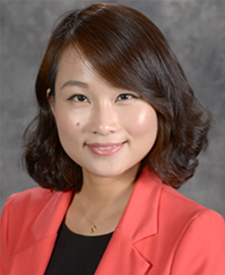
Ellie Heng Qu
Dr. Qu is an assistant professor for the department of Public Service and Administration in The Bush School of Government and Public Service at Texas A&M University. Dr. Qu’s research interests are nonprofit management and philanthropy. Her primary research areas include nonprofit finance and individual prosocial behavior, and her research covers a range of topics that have practical implications for capacity building and resource development of nonprofit organizations. These include nonprofit revenue management, nonprofit endowment management, nonprofit financial reporting and accountability, charitable giving, and volunteering, as well as the effects of prosocial behavior on people’s health and wellbeing.
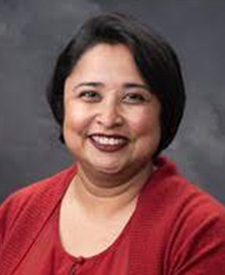
Debalina Sengupta
Dr. Debalina Sengupta is the Coastal Resilience Program Director for Texas Sea Grant at Texas A&M University. She leads and manages extension activities that focus on building resilient communities and economies along the Texas Gulf Coast. Dr. Sengupta works collaboratively with coastal communities to implement strategies that strengthen their resilience and sustainability through science and technology-based interventions. Her research interests span a plethora of topics fueled by her current and past experiences including process systems engineering, sustainability analysis, life cycle assessment, technoeconomic analysis, environmental justice, resilient systems modeling for application areas such as energy transition, gas processing and utilization, sustainable manufacturing, eco-industrial parks, food energy water nexus and others.
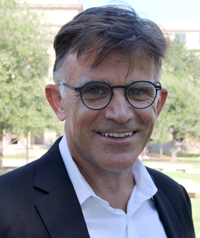
Robert R. Shandley
Dr. Shandley is the associate dean for Undergraduate Programs and professor on the Bush School of Government and Public Service at Texas A&M University. He has written widely on German and American film and television, as well as the history and memory of the Holocaust and World War II in Germany.

James W. Stoutenborough
Dr. Stoutenborough is an independent researcher with previous appointments in academia and a long- standing research association with the Institute since his work here as a postdoctoral research associate. His research interests include public policy, U.S. state politics, public opinion, and political psychology with a substantive interest in science and technology issues like climate change and renewable energy. Dr. Stoutenborough currently researches institutional and behavioral paradigms and integration of these paradigms.
Read more on Dr. Stoutenborough

Dara Wald
Dr. Wald is an associate professor in the Department of Agricultural Leadership, Education, and Communications in the College of Agriculture and Life Sciences at Texas A&M University. Dr. Wald’s research explores the drivers of conflict and barriers to effective communication in agricultural and natural resource contexts (e.g., water, wildlife, and land). Her current scholarship on trust, identity, and power informs the domains of environmental and risk communication, environmental psychology, and public policy.
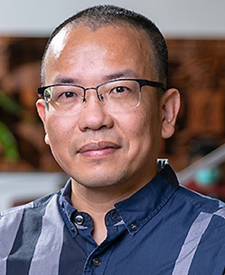
Xinyue Ye
Dr. Ye is a Fellow of the American Association of Geographers and the Harold L. Adams Endowed Professor in the Department of Landscape Architecture & Urban Planning, School of Architecture, at Texas A&M University. He is also director of the Center for Geospatial Sciences, Applications, and Technology (GeoSAT) established by the Texas A&M Board of Regents. His research focuses on developing and implementing new spatiotemporal and network methods in physical, virtual, and perceived spaces to better understand inequality, mobility, and diffusion. His work connects people with technologies that improve health and safety such as social distancing and pandemic, air pollution, and massive movement analytics.

Man-Sung Yim
Dr. Yim is a Professor in Nuclear Engineering and Director, Center for Nuclear Security and Science Policy Initiatives (NSSPI) at Texas A&M University. His career has focused on nuclear security and safety which he has researched from multiple perspectives—nonproliferation and security, power innovation for carbon neutrality, waste management, safety, and energy policy. With advanced degrees in nuclear engineering, environmental science, and environmental health science, Dr. Yim brings his interdisciplinary perspective to public concerns about the risks of nuclear energy and nuclear waste management.
Read more on Dr. Yim here and here.
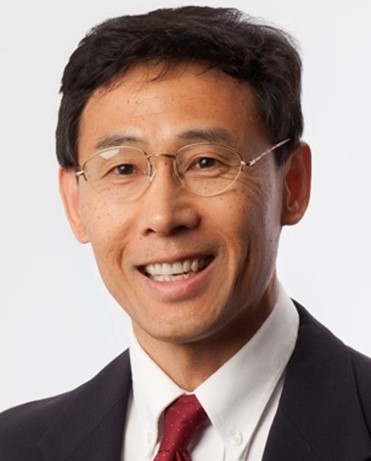
Renyi Zhang
Dr. Renyi Zhang is University Distinguished Professor and Holder of Harold J. Haynes Endowed Chair in Department of Atmospheric Sciences and Department of Chemistry, College of Arts & Sciences at Texas A&M University. Dr. Zhang’s scientific endeavors have contributed to the understanding of several major global challenges: (i) air pollution, (ii) weather extremes, (iii) climate change, (iv) stratospheric ozone depletion, (v) public health, and (vi) COVID-19 pandemic. His research has transformed the understanding of aerosol formation, its effects on the earth’s energy budget and hydrological cycle, aerosol influence on tropical cyclones, and climatic impacts of long-range transport of Asian air pollution, all of which are essential for understanding climate change and predicting weather extremes.
Read more on Dr. Zhang here and here.

Youlang Zhang
Dr. Zhang is an associate professor in the School of Public Administration and Policy at Renmin University of China. His research focuses on bureaucratic politics, policy process, and collaborative governance. Dr. Zhang has empirically examined these topics in the areas of education, lobbying, environmental policy, and administrative reform.

